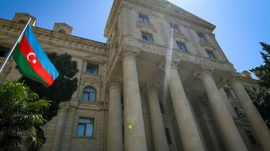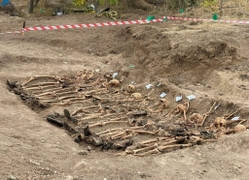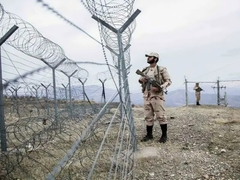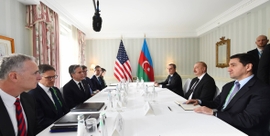The Russian Defense Ministry announced on Monday the appointment of a new commander for its temporary peacekeeping contingent in the Karabakh (Garabagh) region of Azerbaijan.
Major-General Kirill Kulakov officially assumed his position, succeeding Alexander Lentsov, on September 3, as confirmed by the ministry.
Kulakov, aged 54, previously led a branch of the Combined Arms Academy of the Russian Armed Forces in Kazan, also known as the Kazan Higher Tank Command School, before taking on his new role in Azerbaijan’s Karabakh (Garabagh) region. Prior to that, he served as the commander of a tank brigade.
Alexander Lentsov, Kulakov’s predecessor, had been in charge of the temporary Russian peacekeeping mission since April 27, 2023.
Before Lentsov, Russia had appointed four generals to lead the peacekeepers in the Karabakh region, including Rustam Muradov, Mikhail Kosobokov, Gennadiy Anashkin, and Andrei Volkov.
Kosobokov could not continue in his role due to protests from Azerbaijani authorities regarding his appointment. His tenure lasted slightly over two weeks, from September 9 to September 25, before he withdrew prematurely.
General Volkov, who led the peacekeepers from January to April 2023, is known for his controversial role during the protest staged by eco-activists and civil society members from Azerbaijan against Armenia’s unlawful use of mineral resources in Azerbaijani territory. Volkov tried to suppress the protest by refusing to address the legitimate demands of the protesters.
The conflict between Armenia and Azerbaijan dates back to the late 1980s, with growing anti-Azerbaijan sentiments in Armenia centered on illegal claims to Azerbaijan’s historic Karabakh region. Following the dissolution of the Soviet Union in 1991, Armenia launched a full-scale military aggression against Azerbaijan. The bloody war, which lasted until a ceasefire in 1994, resulted in Armenia occupying 20 percent of Azerbaijan’s internationally recognized territories. This occupation led to the deaths of over 30,000 Azerbaijanis and the expulsion of one million others in a brutal ethnic cleansing campaign conducted by Armenia.
The conflict escalated on September 27, 2020, when Armenian forces illegally deployed in the occupied Azerbaijani lands began shelling military positions and civilian settlements of Azerbaijan. The Azerbaijani army promptly launched a counter-offensive to repel Armenia’s attack, liberating over 300 settlements, including the cities of Jabrayil, Fuzuli, Zangilan, Gubadli, and Shusha, from nearly 30 years of illegal Armenian occupation. The war concluded with a tripartite statement signed on November 10, 2020, by Armenia, Azerbaijan, and Russia. Under the statement, Armenia also returned the occupied Aghdam, Kalbajar, and Lachin districts to Azerbaijan.
Under the tripartite agreement, a Russian peacekeeping mission was deployed in certain parts of the Karabakh region for five years. Their primary responsibility is to monitor and ensure adherence to the peace in the region. However, they have failed multiple times to fulfill their obligations.
Firstly, they were unsuccessful in enforcing Article 4 of the trilateral statement from November 10, 2020, which called for the withdrawal of illegal Armenian armed formations from the areas temporarily monitored by the Russian peacekeepers in the Karabakh region.
Secondly, the post-war situation remains fragile due to frequent armed provocations by the Armenian military and illegal armed formations in the region. On September 4-5, 2023, Azerbaijani army positions in the Kalbajar and Sharur districts along the border with Armenia, as well as in the Khojavand district in the Karabakh region, were targeted by these provocations.
Furthermore, the Russian peacekeepers have been observed accompanying illegal arms shipments from Armenia to the Karabakh region despite warnings from Azerbaijan. After Azerbaijan regained full control over the Lachin road, the peacekeepers and illegal armed groups in the region have been seen using dirt roads to bypass the Lachin highway for illegal transfers.
On Tuesday, there were reports of ammunition and other supplies being delivered to separatist combat positions in the Karabakh region through the Khankendi-Karkijahan-Khalfali mountain road.


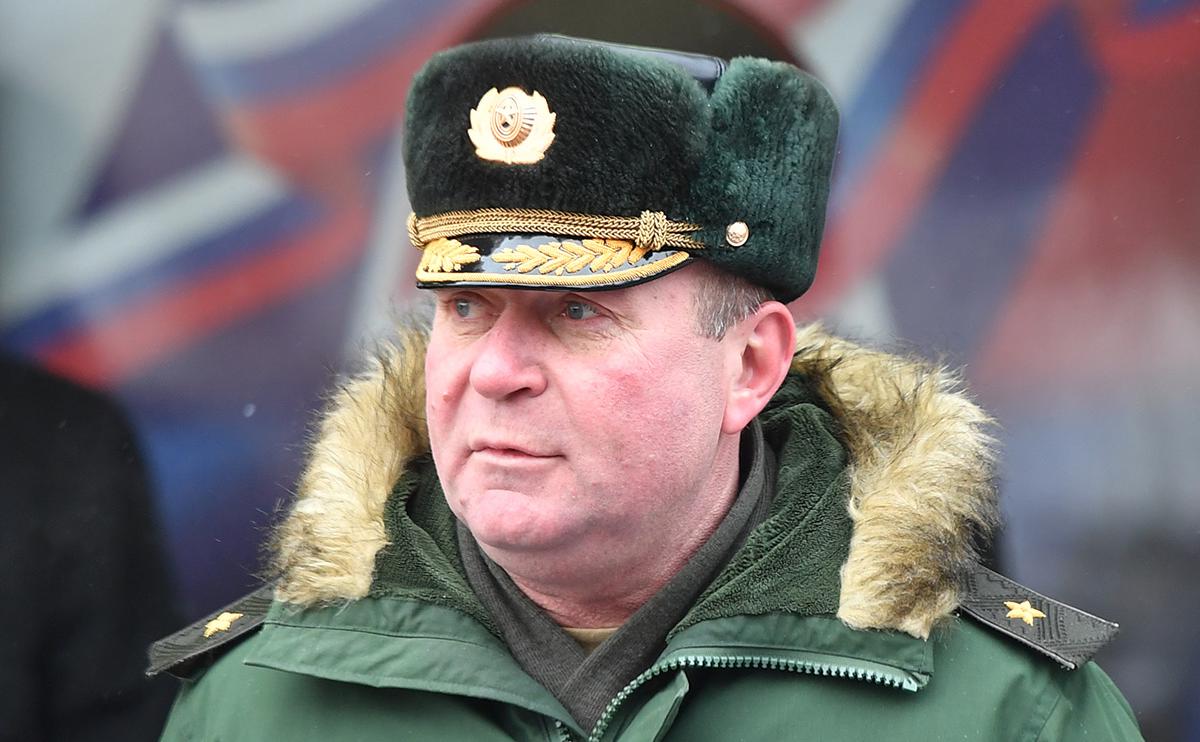




 U.S. Secretary of State Antony Blinken reiterated Washington’s unwavering support for the ongoing peace process between Azerbaijan and Armenia in a...
U.S. Secretary of State Antony Blinken reiterated Washington’s unwavering support for the ongoing peace process between Azerbaijan and Armenia in a...
 The Iranian and Cuban transport ministers have discussed expanding maritime and air transportation cooperation.
The Iranian and Cuban transport ministers have discussed expanding maritime and air transportation cooperation.
 Iran is moving to fortify its eastern border with Afghanistan in a bid to fight illegal migration and drug trafficking, along with enhancing security.
Iran is moving to fortify its eastern border with Afghanistan in a bid to fight illegal migration and drug trafficking, along with enhancing security.
 Kyrgyzstan has joined the extensive reconstruction efforts in the Karabakh region of Azerbaijan, after a series of mega initiatives were launched b...
Kyrgyzstan has joined the extensive reconstruction efforts in the Karabakh region of Azerbaijan, after a series of mega initiatives were launched b...
